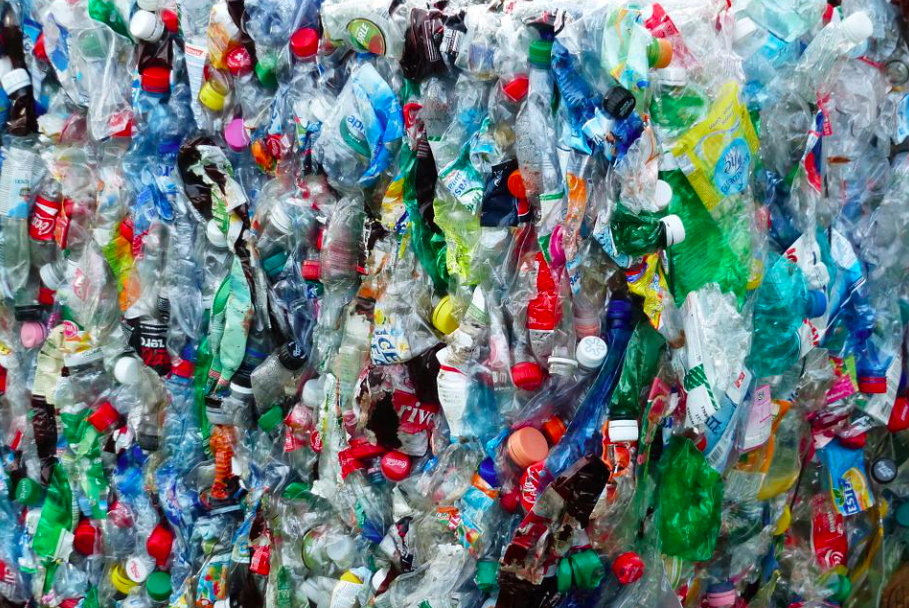Plastics are hugely valuable and useful, delivering massive societal value, Professor Mike Shaver from the University of Manchester explained to the audience gathered for our March Open:Data:Night. But there’s no such thing as sustainable plastics, only sustainable systems.
Speaking as the Director of Sustainable Futures, Director of the Sustainable Materials Innovation Hub and a Professor of Polymer Science, Shaver said it’s not important whether something is recyclable, reusable or compostable – it only matters if it is recycled, reused or composted.
Jane Skelton, Commercial Manager from not-for-profit OPRL, the UK’s most widely recognised recycling label scheme for packaging, explained the challenges of trying to simplify recycling instructions in a complex world. They moved to a binary ‘recycle’, ‘don’t recycle’ labelling system, but said they must sometimes include instructions, like ‘cap on’ or ‘check locally’, because of the complexity of the UK’s waste system.
Debbie Clarke and Corrina O’Brien, from Manchester’s independent, worker-owned Unicorn Grocery, said they believe that the best packaging is no packaging, followed by reusable materials where possible, however, they agreed with Shaver that plastics are a valuable tool, for example, to protect leafy greens.
The pair said some of their customers are disappointed they’ve not ditched plastics, but their research found paper, for example, has a higher carbon footprint than plastics, while compostable materials often suffer from greenwashing, or don’t protect the product well.
Shaver highlighted here that this is an environmental concern itself – it’s the product that actually has the higher footprint – and plastics both increase shelf-life, which reduces food waste, and ensure food safety standards.
Skelton said OPRL is keeping a close eye on changes related to the Plastics Tax and Extended Producer Responsibility (EPR), where those making the packaging choices will bear the full net-cost of it, which is expected to generate around £1.7 billion per year. Much of the money will go to local authorities, who currently deal with the majority of our packaging waste, and producers will be incentivised to choose widely recycled materials.
Truly sustainable solutions, then, must focus on things people will actually do. Shaver pointed to the university’s One Bin Project, which aims for people to put all their plastics in one bin, after which it is identified and treated to keep it in the highest-value state possible, without expecting unrealistic efforts from consumers and those along the chain.
Jamie Dumayne, PhD candidate, University of Lancaster, and former Data Research Intern at Dsposal, has been using the Open3R data standard created by the Open Data Manchester team to improve our understanding of UK waste facilities. He’s mapped them, along with driving time, and catchment areas, and you can see the series of blogs on this starting here.
Skelton said that good-quality data will play a huge part in ensuring manufacturers, retailers, consumers, recyclers, reprocessors, policy-makers and regulators play their parts in improving the current situation – but much of this data doesn’t exist yet.
ODM’s key takeaway was that we need much better data and much more open data if we really want to understand the scale of the problems we face – and the opportunities for solving them. And overly simplistic ideas won’t deal with the problem – we need complex, collaborative, well-researched endeavours grounded in the real world.
You can watch the full Plastics event on Vimeo here:
Open:Data:Night – Plastics: from vilified to valued resource from Open Data Manchester CIC on Vimeo.
In July 2020, Open Data Manchester were delighted to be part of a team that was awarded ODI Stimulus Fund money to develop the Open3R open data standard for public information about local recycling facilities. This has since developed into the Innovate UK-backed Plastics Packaging Portal, which will combine two waste standards, led by OPRL with Dsposal, RECOUP and Ecosurety.

